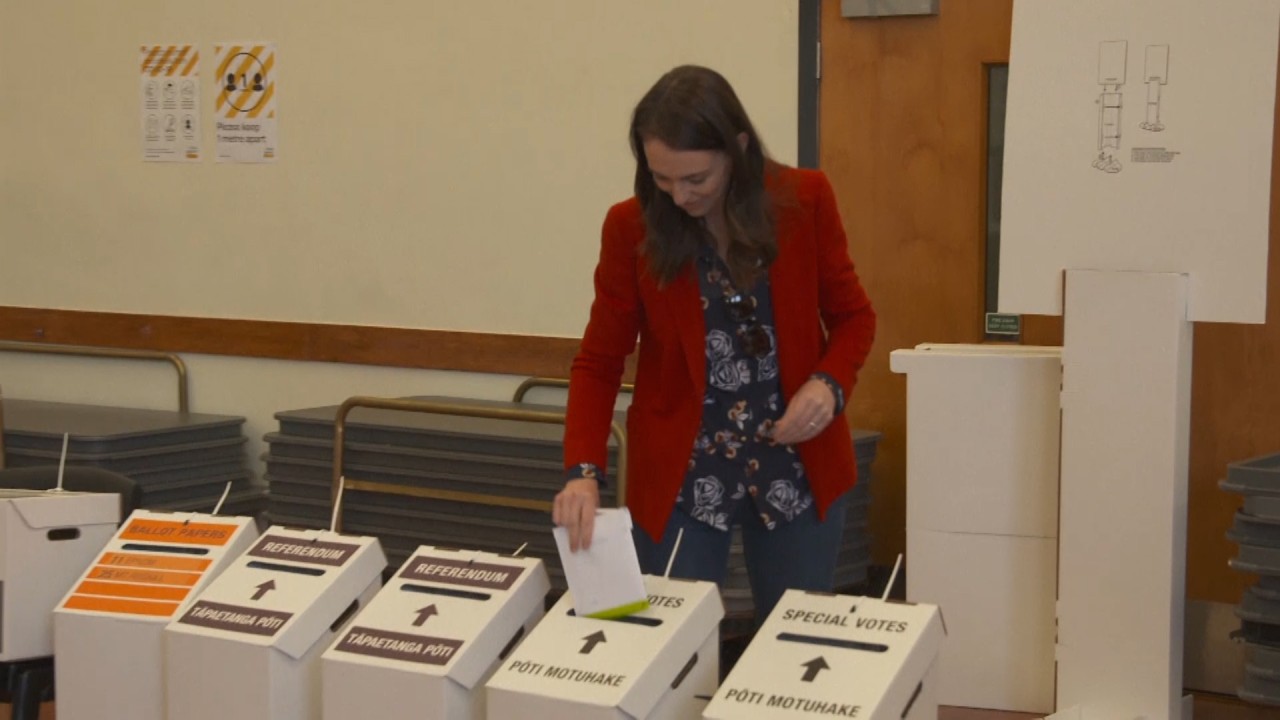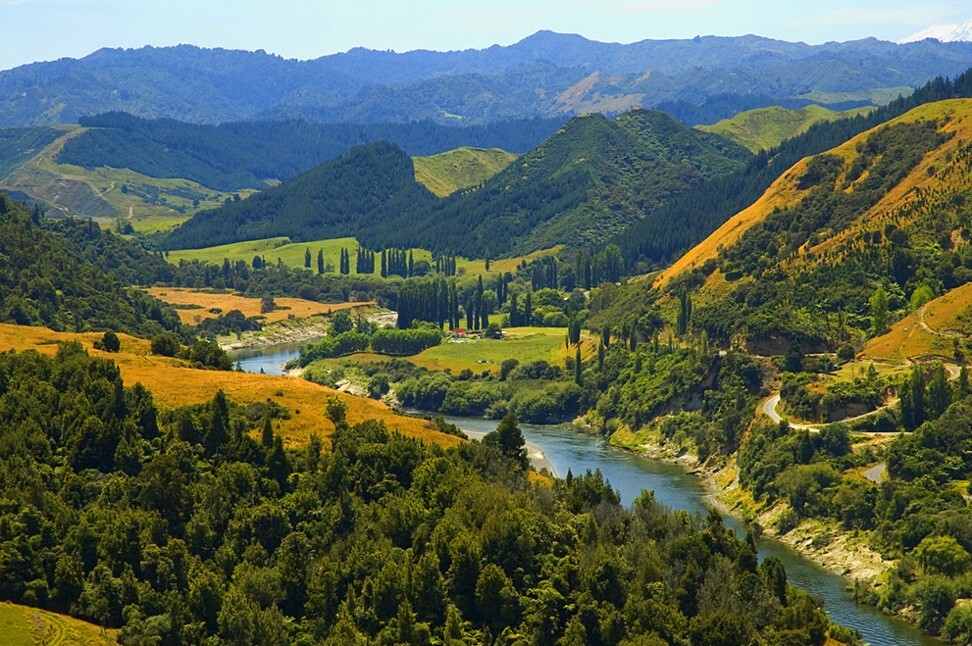
As New Zealand poll nears, PM Jacinda Ardern renews vow to clean up dirty rivers
- To support growing herds, farmers have over the years increased the use of nitrogen fertiliser – some of which seeps into the country’s rivers
- Ardern has a tricky task of reinforcing the nation’s clean, safe reputation without eroding the economic benefits of its large and powerful dairy industry
For a government that is leading in the polls and has been widely praised for its handling of the biggest global health crisis in decades, nitrate levels in rivers may seem like a marginal campaign issue.
But the debate goes to the heart of a conflict between two of the nation’s biggest assets: its clean, green image for tourists and investors, as well as its 6.3 million cows.
Three years after Ardern first pledged to clean up the nation’s 425,000km of rivers, Statistics New Zealand produced a report in April that showed that most of the waterways passing through farm land had high nutrient levels and 24 per cent had too much bacteria.
The government in May delivered a policy package with stricter rules to prevent cattle from entering waterways and an annual limit on farm use of nitrogen-based fertiliser.
Critics say it is not enough, accusing Ardern’s coalition partner New Zealand First of being too sympathetic to the farming industry. They point out that the new rules do not include a gauge of dissolved nitrogen in waterways, robbing authorities of an efficient pollution measure, and fail to commit to a future reduction in use of the fertiliser.
“The nitrogen cap is too high,” said Russel Norman, executive director of Greenpeace New Zealand. “We want it to be lowered significantly and for it to be phased out completely.”

01:01
New Zealand Prime Minister Jacinda Ardern casts her vote ahead of general elections
The dilemma for Ardern in the wake of the coronavirus is to reinforce the nation’s reputation as a clean, safe destination and producer of healthy food without eroding the economic benefits of its large and powerful dairy industry.
“We are already seen as clean, green, and now we are safe as well,” Ardern said in a recent televised debate. “That gives us an opportunity to bring in investment.”
New Zealand’s dairy herds have grown rapidly in the past decades and now produce 21 billion litres of milk a year. Milk powder, meat and wool make up more than 45 per cent of the nation’s exports. Fonterra Cooperative Group, the world’s biggest dairy exporter, paid its farmer suppliers NZ$11 billion (US$7.3 billion) last year – money that spreads into rural communities where the centre-right opposition National Party has strong support.
“What we’ve seen over the years is very nasty campaigns on things like dirty dairying,” opposition leader Judith Collins, who grew up on a dairy farm, said earlier this year. “They’ve taken an industry that has for a long time been our mainstay, and is proving to be again during Covid, and treated the people whose livelihoods and lives are involved as though they were enemies of the people.”
Capsized cattle ship renews New Zealand live animal export concerns
Dairy farmers say their efforts to fence off waterways and improve nutrient management is starting to make a difference. Fonterra said it assesses about 10,000 farms that supply milk every year to ensure they meet required standards and suspended collection from just 51 in the 2018-19 season. Next year it will start paying farmers a premium if they reach the best standard on environmental care and animal welfare.
“We’re committed to playing our part,” said Richard Allen, group director of the co-operative’s Farm Source unit. “Our farmers have been investing significant capital and effort in areas like excluding cows from waterways, upgrading effluent management systems and reducing run-off through riparian planting. We take a firm line with those who persistently fail to meet minimum standards.”

To support growing herds, farmers increased the use of nitrogen fertiliser more than sevenfold since 1990 to 429,000 tons. Some of that fertiliser, along with effluent from cows and other animals, seeps into the rivers.
The coming election could make things tougher for the industry. Ardern has a comfortable lead in her bid to win a second term, with 47 per cent support in the latest political poll, but the make-up of her new coalition government would likely be different. The Green Party’s support could be enough to get them a place in the next cabinet – giving them more power to push their agenda.
“For the first time ever under this government, water has become a priority,” Greens co-leader Marama Davidson said in an interview last month, adding that the party will push for even stronger measures.
The Greens’ platform includes a levy on fertiliser sales, a steady lowering of nitrogen use and a limit on dissolved nitrate in waterways. It also wants curbs on large-scale irrigation.
That may spell an end to the rapid expansion of dairy herds that gave the country more cows than citizens.
“The cure to this problem of nitrate is to have less cows,” said Mike Joy, an ecologist at Victoria University of Wellington who advised the government on its freshwater reforms. “If you reduce the stocking rate, you fix 20 or 30 problems that come from over-intensification.”


